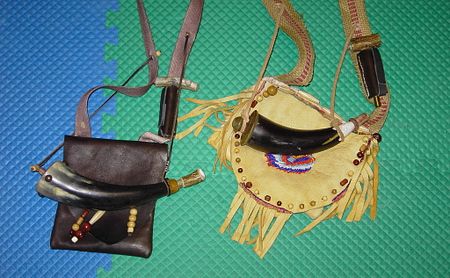No one is 100% historicly correct and every person makes a choice on where he goes with modern convinince over historic.Wow, so much good advice - the thread has rather exceeded my expectations for sheer number and weight of responses. Certainly a good experience to have!
Thank you everyone for your time and knowledge.
Just picking and addressing a few points that jumped out (though I have read and liked every post so far so you know it has been attended to!)
1. Who makes good period buckles?
2. Very wise, will do.
3. My initial notion was to cut each piece of whatever pattern I use twice and double up on each surface, in this way I can make a main body and at least three very thin, nigh unoticeable divisions. My plan for them would be to leave them empty in most cases, but the space would be there in case a need arose and I could always designate one for a special purpose I didn't know I needed later. This wouldn't cost me a helluva lot more to do and the increase in weight would be negligable, especially if I use a lighter leather for the internal face.
4. Aye, I do like the finished look. I'll be working with my uncle who is an accomplished leather stitchler and so it's bound to be a sturdy looker.
5. This advice really stood out to me - What is your reason for eschewing a liner?
Personally I am not planning to line anything but the underside of the front flap, the reason being mostly aesthetic but to give the additional function of being able to stitch or hang things on the underside of the flap if needed (think fishooks, needles and thread or something similar.) . Also for decorative embroidery when bored in camp. I assume that you have a specific reason for not lining the body, however, and I'd love to hear it.
Would you be able to link myself to the article? Very interested.
This is OK, the 'period-ness' requirement is soft for me. I want it to look and feel period in most ways but wouldn't eschew modern conventions that might benefit me just for the purpose of making it period. I'm liable to make sure the hardware is period and everything handstitched, also that the pattern is something resembling period, but the materials and method will likely approach modern in some ways.
We all flub up some where, or we swallow and go ‘we are folks in the here and now ant this is supposed to be fun not a chore.
That said we find somethings they did in the past really worked out well. Somethings were just cause it was all they had and we can do better with a bit of flubbing
Always follow you gut, most fun, easiest to use and pleasing to your eye
















